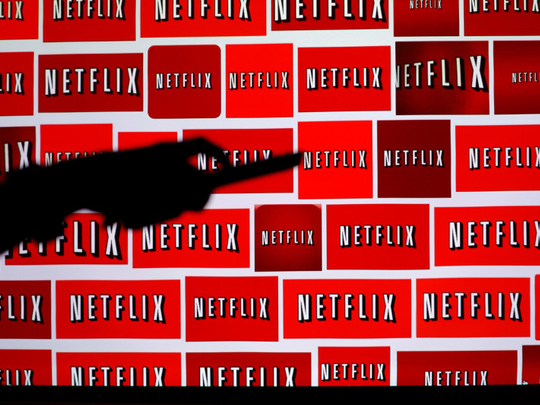
Netflix and Amazon have been nominated for hundreds of Emmys and Golden Globe awards in recent years, and that is a testament to both, the quality of those companies and the transformation of television. But some of the credit is also due to “net neutrality”, the legal regime that nurtured and protected the open internet and streaming TV in the first place.
Streaming, after all, is a cheaper and better form of television. For that reason, it is something the cable industry would not have allowed to thrive had it been left to its own devices. Fortunately, net neutrality rules prevented cable companies from killing or interfering with streaming television during its infancy.
You might think it unwise, therefore, to question a policy that has yielded both lower prices and good television. But United States President Donald Trump’s chairman of the Federal Communications Commission (FCC), Ajit Pai, on Wednesday announced plans to eliminate net neutrality (technically, make it “voluntary”) despite its popularity, record of success and acceptance by most of the industry.
His proposal is of dubious legality. But should it succeed, the only real winners will be the cable and phone industries, which will gain yet another way to raise prices for everyone. The proposal is the epitome of senseless government action and sharply out of step with Trump’s populist mandate. Did Trump voters really vote for higher cable bills?
In analysing the attack on net neutrality, one looks in vain for the problem that needs to be fixed. Net neutrality refers to rules intended to ensure that broadband providers cannot block content or provide faster delivery to companies that pay more. The policy was put in place during the administration of former US president George W. Bush, where it enjoyed bipartisan support. In the years since, it has sheltered bloggers, non-profit organisations like Wikipedia, smaller tech companies, TV and music streamers, and entrepreneurs from being throttled by providers like AT&T and Verizon that own the “pipes”.
The policy’s contributions are not just cultural but also economic: Television has been revitalised, and waves of successful internet start-ups have returned America’s high-tech industry to unquestioned global leadership. Net neutrality has been among the most effective economic policies of the 21st century.
The idea of killing net neutrality certainly has nothing to do with voters or majority will. Instead, the proposal, like Pai’s earlier gutting of privacy protections for cable customers, is at war with the economic populism that voters claimed they wanted and that Trump promised last year.
Make no mistake: While killing net neutrality may be rolled out with specious promises of “free video”, there is nothing here for ordinary people. Lowering prices is just not something that cable or phone companies will do except under pressure. Instead, the repeal of net neutrality will simply create ways for cable and phone companies to tax the web and increase your broadband bill. Raise your hand if that sounds enticing.
The officially stated reason for ending net neutrality is an obfuscation. Pai claims to support an open internet, but wants only “voluntary” compliance with net neutrality rules. But if it isn’t broken, what is the FCC trying to fix? The record suggests that the rules promote competition by imposing limits on ever more concentrated private power. Indeed, the basic insight behind net neutrality is not novel: For centuries there have been laws preventing the owners of infrastructure like bridges or ports from abusing their position and hurting the economy. Despite this history, the FCC has decided on a new direction, the opposite of pragmatism.
The more convincing explanations for this change are more straightforward — and darker — than Pai’s. Much of Silicon Valley and Hollywood have supported both net neutrality and the Democratic Party, making an attack on the policy a kind of punishment.
If Pai’s reasoning sounds forced and unconvincing, it is because this proposal comes right from the swamp, and can be attractive only to those who have lived there long enough to no longer notice the stench.
Trump ran as an economic populist, but the announcement of Pai’s plan could reveal what a true populist backlash looks like. Just a few years ago, more than four million people wrote to the FCC to demand stronger controls on the cable industry, while those who took cable’s side would have fit in the commission’s lobby.
The proposal to kill net neutrality is terrible economic policy and bad politics. It is starkly inconsistent with any populist mandate. There is a reason that net neutrality is called the third rail of internet politics, and Pai has now grabbed it.
— New York Times News Service
Tim Wu, the author of The Attention Merchants: The Epic Struggle to Get Inside Our Heads, is a professor at Columbia Law School and a contributing opinion writer.












